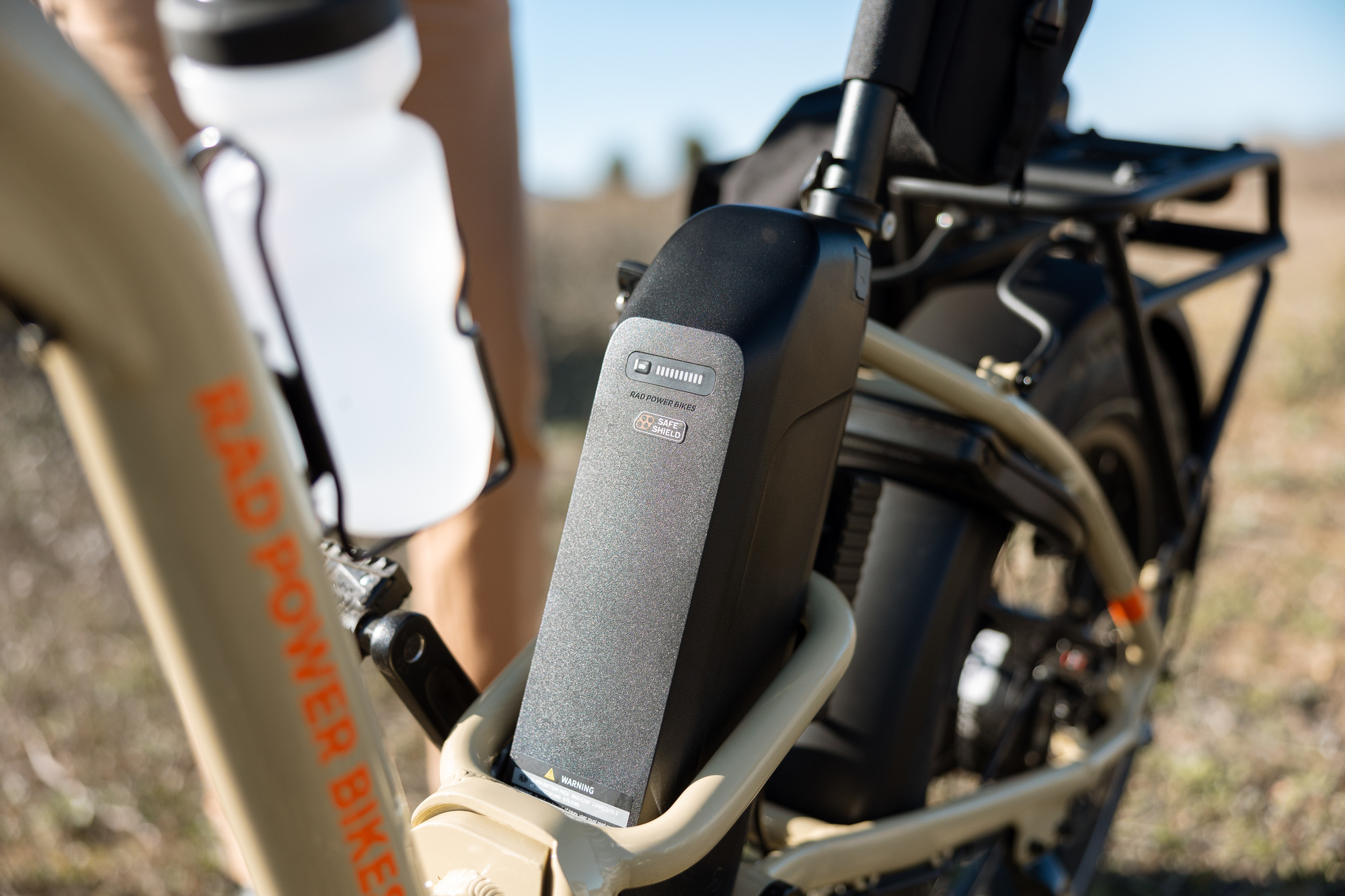Rad Power Bikes in crisis? Seattle company hit with battery warning but cannot afford a fix
With 31 fires and nearly three-quarter–million dollars in damage linked to its batteries, Rad Power Bikes says a full recall would bankrupt the company


Rad Power Bikes, once the dominant force in North America’s e-bike market, is facing escalating turmoil after the U.S. Consumer Product Safety Commission (CPSC) issued an urgent warning, advising consumers to immediately stop using some of its batteries due to fire hazard and risk of serious injury or, even, death.
According to the CPSC, officials have documented 31 battery fires, including 12 incidents causing an estimated $734,500 in property damage. Some fires occurred while the bikes were idle or in storage.
The CPSC alert targets certain batteries used in numerous Rad e-bike models, including the RadWagon 4, RadCity 4, RadRover 5, RadRunner 1 and 2, RadRunner Plus, and RadExpand 5. The affected models use battery numbers RP-1304 and HL-RP-S1304, which federal regulators say can ignite or explode unexpectedly, even when not charging.
The agency is urging owners to remove the battery immediately and dispose of it through proper hazardous waste channels.
A downward spiral
The safety notice comes just one week after the company filed a Worker Adjustment and Retraining Notification (WARN) with Washington state regulators, informing employees of a potential “cessation of operations” as early as January 2026, if it cannot secure new funding or an acquisition.
The filing warned that a shutdown could affect 64 jobs, including executive leadership, customer support staff and mechanics. Executives described the move as precautionary yet acknowledged that Rad is actively seeking buyers and investors to continue operations.
Founded in 2007, Rad Power Bikes surged to prominence during the pandemic, experiencing a 297% spike in demand in 2020 and raising more than $300 million from investors over the next two years. But a mix of pandemic demand decline, increase in supply chain cost and a series of lawsuits and recalls send Rad into a multi-year downward spiral of layoffs, store closures, the end of its European operations and increasing financial strain.
The latest race content, interviews, features, reviews and expert buying guides, direct to your inbox!
In the latest CPSC filing, regulators noted that Rad “has refused to agree to an acceptable recall,” stating that the company told the agency it cannot afford to offer replacement batteries (which retail for around $550) or provide refunds to all affected customers, as typically required in a safety recall.
Rad argued that replacing every hazardous battery would “immediately put Rad out of business.” The company also defended its products, stating that its newer Safe Shield and semi-integrated batteries are not included in the warning and that the older batteries underwent and passed third-party testing.
To Cycling Weekly, a Rad Power Bikes spokesperson pointed out that context matters. Those 31 reported incidents came from more than 100,000 batteries in use.
Furthermore, "Rad Power Bikes firmly stands behind our batteries and our reputation as leaders in the e-bike industry, and strongly disagrees with the CPSC's characterisation of certain Rad batteries as defective or unsafe," the spokesperson said.
"We have a long and well-documented track record of building safe, reliable e-bikes equipped with batteries that meet or exceed rigorous international safety standards, including UL-2271 and UL-2849. The CPSC proposed requiring these UL standards in January 2025, but has yet to adopt them. Rad e-bikes have met these standards for years."
"It is also widely understood that all lithium-ion batteries—whether in e-bikes, e-scooters, laptops, or power tools—can pose a fire risk if damaged, improperly charged, exposed to excess moisture, subjected to extreme temperatures or improper modifications to the electrical components, all of which Rad repeatedly advises against in user manuals and customer safety guides. E-bike batteries are significantly more powerful than household device batteries, which is why proper care and maintenance are so important and why Rad continues to invest in rider education and safety innovation."
The spokesperson further expressed disappointment with the CPSC's process.
"Rad hoped this process would be an opportunity to work with the agency and others in the industry to improve rider education and offer clearer, more consistent safety guidance on how to use and store e-bikes and their batteries safely," the spokesperson's statement reads.
"Rad offered multiple good-faith solutions to address the agency’s concerns, including offering consumers an opportunity to upgrade to Safe Shield batteries at a substantial discount. CPSC rejected this opportunity. The significant cost of the all-or-nothing demand would force Rad to shut its doors immediately, leaving no way to support our riders or our employees."
Rad Power Bikes has faced multiple public safety notices and recalls since the start of the pandemic, alongside several lawsuits, including wrongful-death and product-liability cases related to battery fires and alleged design defects.
In a letter to employees earlier this month, Rad leadership emphasised that efforts to secure new funding or strategic partnerships remain ongoing, and that “the cessation of Rad’s operations is not a foregone conclusion.”
But with a major federal safety warning now added to its challenges, the company’s future will hinge on whether it can stabilise both its finances and public confidence in the months ahead.

Cycling Weekly's North American Editor, Anne-Marije Rook is old school. She holds a degree in journalism and started out as a newspaper reporter — in print! She can even be seen bringing a pen and notepad to the press conference.
Originally from the Netherlands, she grew up a bike commuter and didn't find bike racing until her early twenties when living in Seattle, Washington. Strengthened by the many miles spent darting around Seattle's hilly streets on a steel single speed, Rook's progression in the sport was a quick one. As she competed at the elite level, her journalism career followed, and soon, she became a full-time cycling journalist. She's now been a journalist for two decades, including 12 years in cycling.
You must confirm your public display name before commenting
Please logout and then login again, you will then be prompted to enter your display name.